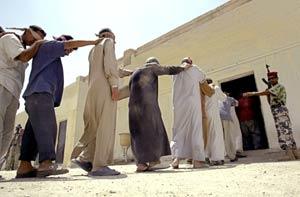UN Human Rights Body to Scrutinize US Abuses


By Thalif Deen
Inter Press Service
Wednesday 21 September 2005
United Nations - The UN Human Rights Committee, scheduled to meet in Geneva next month, has written to non-governmental organizations (NGOs) calling for any available evidence of human rights abuses by the United States - particularly in the aftermath of its global war on terrorism.
The 18-member committee, comprising of independent human rights experts, will take up "issues of specific concerns relating to the effect of measures taken (by the administration of President George W. Bush) in the fight against terrorism following the events of 11 September 2001," the day the United States was subject to terrorist attacks.
The primary focus will be "on the implications of the USA Patriot Act on nationals and non-nationals, as well as problems relating to the legal status and treatment of persons detained in Afghanistan, Guantánamo, Iraq and other places of detention outside the USA."
The US Congress adopted the USA Patriot Act in October 2001 in order to provide "appropriate tools required to intercept and obstruct terrorism."
But virtually all human rights organizations, both domestic and international, have criticized the Act as seriously threatening civil liberties and freedoms in the United States.
"The USA Patriot Act was destined to foster abuses, as it weakened the system of checks and balances on law enforcement while setting aside due process safeguards under the law," says Jumana Musa, advocacy director at Amnesty International USA.
Alarmingly, Musa added, the Patriot Act has inspired a proliferation of copycat laws worldwide, prompting abuses that the United States has officially pledged to counter.
"The boast that the United States is now the world's only superpower has a grim undertow in the area of human rights; no one can tell Washington what to do or not do, no matter how egregious its cruelties," says Norman Solomon, executive director of the Washington-based Institute for Public Accuracy.
"Most governments d




0 Comments:
Post a Comment
<< Home